Serbian FM urges UNSC to prevent unilateral actions
Serbian Foreign Minister Vuk Jeremić asked Tuesday the UN Security Council to ensure that unilateral actions are no longer allowed.
Wednesday, 30.11.2011.
09:31

Serbian Foreign Minister Vuk Jeremic asked Tuesday the UN Security Council to ensure that unilateral actions are no longer allowed. “The security situation in our southern province of Kosovo and Metohija has been greatly aggravated since the end of the previous reporting period,” Jeremic said. Serbian FM urges UNSC to prevent unilateral actions “We call upon all stakeholders on the ground in North Kosovo-KFOR and EULEX officials, as well as local community leaders-to engage in dialogue and work together to restore calm immediately,” he stressed. “The removal of barricades is clearly in the interest of peace and stability, but it should be achieved exclusively through peaceful means. We must find the way out of the vicious circle of violence in which only extremism thrives,” Jeremic said. “We are facing a worsening situation in Kosovo. It necessitates more active engagement by this body,” he added. “I call on the Security Council to make sure no more forceful unilateral acts are allowed to take place-and that it does so in clear, unequivocal, unbiased and status-neutral terms,” the Serbian minister said. “I urge this body to take this crucial step without any further hesitation,” he added. “If we are genuinely concerned about peace and stability in Kosovo-if reestablishing security and improving the quality of life for the people on the ground is our objective-then there can be no justification for refusing to heed such a call right now,” Jeremic noted. “A failure to act would be a disappointing abdication of the responsibility entrusted to this Council by the world's family of nations,” he said. “Taking charge of the present moment, on the other hand, cannot but enhance the enduring benefit and honor of the founding principles of the UN,” Jeremic said. “At this particularly delicate moment, it is critical that we send the right messages and draw the appropriate lessons from the recent incident at Dudin Krs near Zvecan, and yesterday's at Jagnjenica,” he explained. “Both began in similar fashion. Unprovoked, KFOR troops rapidly approached the barricades, and immediately started to dismantle them with heavy equipment. This caused the situation to escalate. Villagers from neighboring areas began to arrive to defend their positions. In both cases, scores of civilians and dozens of soldiers were injured,” Jeremic stated in his speech. “Negotiations conducted in good faith are predicated on abstaining from the use of instruments of compulsion. These are mutually exclusive concepts. Either one negotiates in good-faith, or tries to resolve the issue through forceful imposition. The choice could not be clearer: peaceful dialogue, or unilateral action,” Jeremic pointed out. “Serbia is ready for the former, and categorically rejects the latter,” he said. “Serbia's condemnation of the use of force by any party has always been swift and unequivocal,” the foreign minister stressed. “It is indicative, however, that almost every time a new round of dialogue between Belgrade and Pristina is due to take place-in the present case, tomorrow-unilateralism suddenly comes back to the fore,” he repeated. “At the beginning of the three-month period covered by the report, it was possible to be cautiously optimistic, as certain aspects of the situation in Kosovo seemed to be improving,” Jeremic said. “The fifth round of dialogue between Belgrade and Pristina had just taken place on July 2. It had produced status-neutral agreements in some important areas,” he said. “Rather than trying to build on the positive momentum, however, a choice was made in Pristina to attempt to unilaterally alter the reality on the ground, clearly outside of the framework provided by the dialogue,” the FM said. “This happened twice during the reporting period. The first time was on July 25, when the territory's ethnic-Albanian authorities ordered the deployment of the so-called ROSU paramilitary unit to North Kosovo, with the aim to seize administrative checkpoints-known as Gates 1 and 31. According to the Report, this was "not coordinated with the international presences or the communities on the ground", he said. As a consequence, dynamics changed overnight-"a significant deterioration in the security situation" in North Kosovo, in the words of the report, Jeremic said. "In reaction to the actions of Pristina," the report says, "local Kosovo Serbs, who continue to reject the authority of the Kosovo institutions, erected roadblocks", he said. “Thanks in part to the swift, yet measured response by Belgrade, the situation was contained, and did not spin dangerously out of control. The overall state of affairs in northern Kosovo had ceased to worsen by the end of August, although tensions remained high,” he explained. “It is against this backdrop that the sixth round of dialogue took place in Brussels on September 2. Another status-neutral solution was reached-this time, on customs stamps,” he said. “We were led to believe that in the period ahead, implementation would be discussed in good faith, so that underlying procedures could be agreed and put into practice. Instead, for the second time in as many months, an attempt was made to impose an outcome outside of the dialogue framework on the very same issue-Gates 1 and 31,” he said. “A document entitled 'Kosovo Police Operational Plan' confirmed this intention. It reads: ‘All operations will be conducted under Kosovo sovereignty and in accordance with Kosovo laws and regulations’”, Jeremic said. “This is manifestly incompatible with resolution 1244 (1999), and drastically deviates from the UN's status neutral framework. It also ignores the terms of the secretary-general's Six Points Agreement-welcomed by this Council in November 2008-which states very precisely that ‘international customs officers appointed in accordance with Security Council resolution 1244 (1999) will be reinstated at gates 1 and 31’”, he said. Nevertheless, both KFOR and EULEX chose to support the operation, which began on September 16, he added. “Explicit warnings were voiced in this chamber on the eve of the announced action that this would effectively mean stepping beyond the limits of KFOR's and EULEX's respective mandates-in violation of resolution 1244 (1999). Not only would this undermine the centrality of the dialogue process, but it was also blatantly obvious that this would heighten tensions in North Kosovo, and would surely result in the loss of the international missions' legitimacy in the eyes of the local population,” he stressed “Unfortunately, the inevitable happened. Residents of northern Kosovo responded by reinforcing existing roadblocks and erecting new ones. Their resolute determination to resist the imposition of a decisively unwanted regime has become one of the most conspicuous elements of the reality on the ground,” Jeremic said. “Regretfully, some of the occasional clashes turned violent and resulted in injuries on both sides of the divide,” he added. “While we have rightfully focused our attention on events taking place in the north, we must not ignore the fact that the situation in the South has gotten worse, as well,” the foreign minister noted. “The Report underlines that ‘the number of violent incidents affecting the Serb population [south of the Ibar River] increased following the July events’-in comparison to the same period last year,” he said. “In addition to the brutal murder of a Kosovo Serb, it lists numerous acts of desecration and vandalism against Serbian Orthodox Church holy sites and cemeteries, vehicle stonings, arson attacks on returnee housing, burglaries, theft of farm equipment, and drinking well contaminations. The Report does not indicate that any of these hate crimes have been solved-or even that anyone has been charged with committing them,” Jeremic said. “Almost a year ago, the Council of Europe released a deeply disturbing report entitled ‘Inhuman Treatment of People and Illicit Trafficking in Human Organs in Kosovo’, he said. “Since that time, excruciatingly little has been done to uncover the truth about these allegations-especially considering the uniquely heinous nature of the charges,” Jeremic stressed. “In that regard, the recent appointment of Clint Williamson as lead prosecutor for the EULEX Special Investigative Task Force is a welcome development. We will assist him and his team in any way that we can, for we believe they can make an invaluable contribution to uncovering what occurred inside Kosovo itself,” the minister said. “But this remains manifestly insufficient, for the alleged harvesting and smuggling of organs of innocent Serbian civilians took place beyond that territory. Despite all protestations to the contrary, it is indisputable that EULEX cannot operate at full capacity anywhere outside Kosovo. In other words, the European Law and Order Mission in Kosovo has neither an adequate mandate-nor a sufficient temporal and territorial jurisdiction-to carry out an investigation that would be comprehensive in scope. The EULEX Special Investigative Task Force has no ability to enforce the cooperation of all concerned. Only this body can do that,” he added. “We are not opposed to the centrality of EULEX in an investigation mechanism. But it must be both empowered by, and accountable to, the Security Council. This has been the standard applied in each previous instance involving serious war crimes and crimes against humanity in the Balkans-whichever side the perpetrators belonged to, and irrespective of their political roles,” Jeremic explained. “There is no compelling reason not to make a comprehensive, independent investigation accountable to the whole world in this case as well,” he underscored. “This is the only way to guarantee both fairness and transparency, and prevent doubts about anyone's full commitment. A few days ago, however, the Task Force spokesman said that details of the investigation they are conducting would remain "confidential" until it has come to an end. This might take years,” he added. “This is outrageous and unacceptable,” Jeremic said. “If senior Hague Tribunal officials brief the Security Council every six months, why should those tasked with the organs trafficking case not do so, as well,” the minister asked. “We have already presented proposals on the investigation mechanism, and we urge the Council to act upon them,” he said. “Come what may, the truth cannot possibly rise to the surface without ironclad witness protection guarantees. At this point, they simply do not exist,” Jeremic noted. “The recent mysterious death of a key witness in an important war crimes trial has reinforced the perception that EULEX is unable to guarantee the safety of those in its protective custody,” he added. “The defendant in the case in question is Fatmir Limaj, a powerful former minister in Hashim Thaci's cabinet. He has been identified by the Council of Europe, together with several others, including Thaci himself, as having "played vital roles as co-conspirators in various categories of criminal activity"-including human organs trafficking,” Jeremic said. “The witness, Mr. Agim Zogaj, had been under the protection of EULEX but had somehow ended up alone and dead in a park in Duisburg, Germany,” the FM explained. “This suggests that EULEX does not have the capacity to protect witnesses,” Jeremic said. “We too must reinvigorate our efforts. It is essential that all the stakeholders pledge to make the dialogue the sole mechanism within which differences will be brought to the fore,” the Serbian foreign minister emphasized. Vuk Jeremic
Serbian FM urges UNSC to prevent unilateral actions
“We call upon all stakeholders on the ground in North Kosovo-KFOR and EULEX officials, as well as local community leaders-to engage in dialogue and work together to restore calm immediately,” he stressed.“The removal of barricades is clearly in the interest of peace and stability, but it should be achieved exclusively through peaceful means. We must find the way out of the vicious circle of violence in which only extremism thrives,” Jeremic said.
“We are facing a worsening situation in Kosovo. It necessitates more active engagement by this body,” he added.
“I call on the Security Council to make sure no more forceful unilateral acts are allowed to take place-and that it does so in clear, unequivocal, unbiased and status-neutral terms,” the Serbian minister said.
“I urge this body to take this crucial step without any further hesitation,” he added.
“If we are genuinely concerned about peace and stability in Kosovo-if reestablishing security and improving the quality of life for the people on the ground is our objective-then there can be no justification for refusing to heed such a call right now,” Jeremić noted.
“A failure to act would be a disappointing abdication of the responsibility entrusted to this Council by the world's family of nations,” he said.
“Taking charge of the present moment, on the other hand, cannot but enhance the enduring benefit and honor of the founding principles of the UN,” Jeremić said.
“At this particularly delicate moment, it is critical that we send the right messages and draw the appropriate lessons from the recent incident at Dudin Krš near Zvečan, and yesterday's at Jagnjenica,” he explained.
“Both began in similar fashion. Unprovoked, KFOR troops rapidly approached the barricades, and immediately started to dismantle them with heavy equipment. This caused the situation to escalate. Villagers from neighboring areas began to arrive to defend their positions. In both cases, scores of civilians and dozens of soldiers were injured,” Jeremić stated in his speech.
“Negotiations conducted in good faith are predicated on abstaining from the use of instruments of compulsion. These are mutually exclusive concepts. Either one negotiates in good-faith, or tries to resolve the issue through forceful imposition. The choice could not be clearer: peaceful dialogue, or unilateral action,” Jeremić pointed out.
“Serbia is ready for the former, and categorically rejects the latter,” he said.
“Serbia's condemnation of the use of force by any party has always been swift and unequivocal,” the foreign minister stressed.
“It is indicative, however, that almost every time a new round of dialogue between Belgrade and Priština is due to take place-in the present case, tomorrow-unilateralism suddenly comes back to the fore,” he repeated.
“At the beginning of the three-month period covered by the report, it was possible to be cautiously optimistic, as certain aspects of the situation in Kosovo seemed to be improving,” Jeremić said.
“The fifth round of dialogue between Belgrade and Priština had just taken place on July 2. It had produced status-neutral agreements in some important areas,” he said.
“Rather than trying to build on the positive momentum, however, a choice was made in Priština to attempt to unilaterally alter the reality on the ground, clearly outside of the framework provided by the dialogue,” the FM said.
“This happened twice during the reporting period. The first time was on July 25, when the territory's ethnic-Albanian authorities ordered the deployment of the so-called ROSU paramilitary unit to North Kosovo, with the aim to seize administrative checkpoints-known as Gates 1 and 31. According to the Report, this was "not coordinated with the international presences or the communities on the ground", he said.
As a consequence, dynamics changed overnight-"a significant deterioration in the security situation" in North Kosovo, in the words of the report, Jeremić said.
"In reaction to the actions of Priština," the report says, "local Kosovo Serbs, who continue to reject the authority of the Kosovo institutions, erected roadblocks", he said.
“Thanks in part to the swift, yet measured response by Belgrade, the situation was contained, and did not spin dangerously out of control. The overall state of affairs in northern Kosovo had ceased to worsen by the end of August, although tensions remained high,” he explained.
“It is against this backdrop that the sixth round of dialogue took place in Brussels on September 2. Another status-neutral solution was reached-this time, on customs stamps,” he said.
“We were led to believe that in the period ahead, implementation would be discussed in good faith, so that underlying procedures could be agreed and put into practice. Instead, for the second time in as many months, an attempt was made to impose an outcome outside of the dialogue framework on the very same issue-Gates 1 and 31,” he said.
“A document entitled 'Kosovo Police Operational Plan' confirmed this intention. It reads: ‘All operations will be conducted under Kosovo sovereignty and in accordance with Kosovo laws and regulations’”, Jeremić said.
“This is manifestly incompatible with resolution 1244 (1999), and drastically deviates from the UN's status neutral framework. It also ignores the terms of the secretary-general's Six Points Agreement-welcomed by this Council in November 2008-which states very precisely that ‘international customs officers appointed in accordance with Security Council resolution 1244 (1999) will be reinstated at gates 1 and 31’”, he said.
Nevertheless, both KFOR and EULEX chose to support the operation, which began on September 16, he added.
“Explicit warnings were voiced in this chamber on the eve of the announced action that this would effectively mean stepping beyond the limits of KFOR's and EULEX's respective mandates-in violation of resolution 1244 (1999). Not only would this undermine the centrality of the dialogue process, but it was also blatantly obvious that this would heighten tensions in North Kosovo, and would surely result in the loss of the international missions' legitimacy in the eyes of the local population,” he stressed
“Unfortunately, the inevitable happened. Residents of northern Kosovo responded by reinforcing existing roadblocks and erecting new ones. Their resolute determination to resist the imposition of a decisively unwanted regime has become one of the most conspicuous elements of the reality on the ground,” Jeremić said.
“Regretfully, some of the occasional clashes turned violent and resulted in injuries on both sides of the divide,” he added.
“While we have rightfully focused our attention on events taking place in the north, we must not ignore the fact that the situation in the South has gotten worse, as well,” the foreign minister noted.
“The Report underlines that ‘the number of violent incidents affecting the Serb population [south of the Ibar River] increased following the July events’-in comparison to the same period last year,” he said.
“In addition to the brutal murder of a Kosovo Serb, it lists numerous acts of desecration and vandalism against Serbian Orthodox Church holy sites and cemeteries, vehicle stonings, arson attacks on returnee housing, burglaries, theft of farm equipment, and drinking well contaminations. The Report does not indicate that any of these hate crimes have been solved-or even that anyone has been charged with committing them,” Jeremić said.
“Almost a year ago, the Council of Europe released a deeply disturbing report entitled ‘Inhuman Treatment of People and Illicit Trafficking in Human Organs in Kosovo’, he said.
“Since that time, excruciatingly little has been done to uncover the truth about these allegations-especially considering the uniquely heinous nature of the charges,” Jeremić stressed.
“In that regard, the recent appointment of Clint Williamson as lead prosecutor for the EULEX Special Investigative Task Force is a welcome development. We will assist him and his team in any way that we can, for we believe they can make an invaluable contribution to uncovering what occurred inside Kosovo itself,” the minister said.
“But this remains manifestly insufficient, for the alleged harvesting and smuggling of organs of innocent Serbian civilians took place beyond that territory. Despite all protestations to the contrary, it is indisputable that EULEX cannot operate at full capacity anywhere outside Kosovo. In other words, the European Law and Order Mission in Kosovo has neither an adequate mandate-nor a sufficient temporal and territorial jurisdiction-to carry out an investigation that would be comprehensive in scope. The EULEX Special Investigative Task Force has no ability to enforce the cooperation of all concerned. Only this body can do that,” he added.
“We are not opposed to the centrality of EULEX in an investigation mechanism. But it must be both empowered by, and accountable to, the Security Council. This has been the standard applied in each previous instance involving serious war crimes and crimes against humanity in the Balkans-whichever side the perpetrators belonged to, and irrespective of their political roles,” Jeremić explained.
“There is no compelling reason not to make a comprehensive, independent investigation accountable to the whole world in this case as well,” he underscored.
“This is the only way to guarantee both fairness and transparency, and prevent doubts about anyone's full commitment. A few days ago, however, the Task Force spokesman said that details of the investigation they are conducting would remain "confidential" until it has come to an end. This might take years,” he added.
“This is outrageous and unacceptable,” Jeremić said.
“If senior Hague Tribunal officials brief the Security Council every six months, why should those tasked with the organs trafficking case not do so, as well,” the minister asked.
“We have already presented proposals on the investigation mechanism, and we urge the Council to act upon them,” he said.
“Come what may, the truth cannot possibly rise to the surface without ironclad witness protection guarantees. At this point, they simply do not exist,” Jeremić noted.
“The recent mysterious death of a key witness in an important war crimes trial has reinforced the perception that EULEX is unable to guarantee the safety of those in its protective custody,” he added.
“The defendant in the case in question is Fatmir Limaj, a powerful former minister in Hashim Thaci's cabinet. He has been identified by the Council of Europe, together with several others, including Thaci himself, as having "played vital roles as co-conspirators in various categories of criminal activity"-including human organs trafficking,” Jeremić said.
“The witness, Mr. Agim Zogaj, had been under the protection of EULEX but had somehow ended up alone and dead in a park in Duisburg, Germany,” the FM explained.
“This suggests that EULEX does not have the capacity to protect witnesses,” Jeremić said.
“We too must reinvigorate our efforts. It is essential that all the stakeholders pledge to make the dialogue the sole mechanism within which differences will be brought to the fore,” the Serbian foreign minister emphasized.











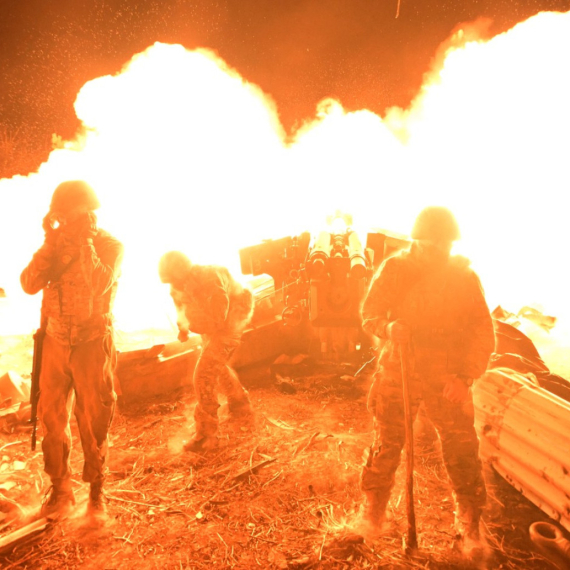




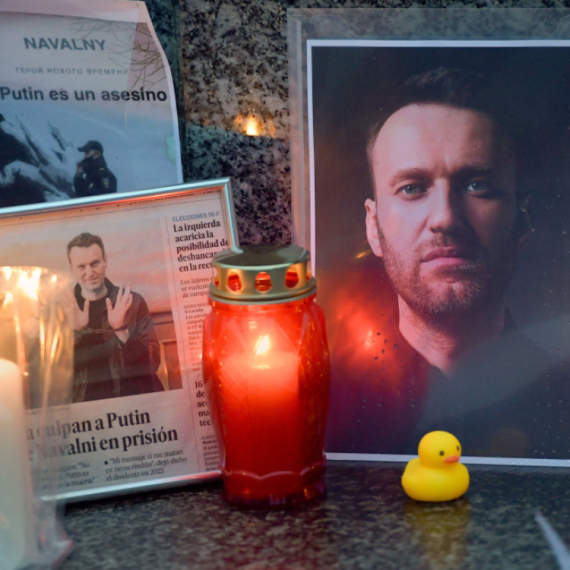
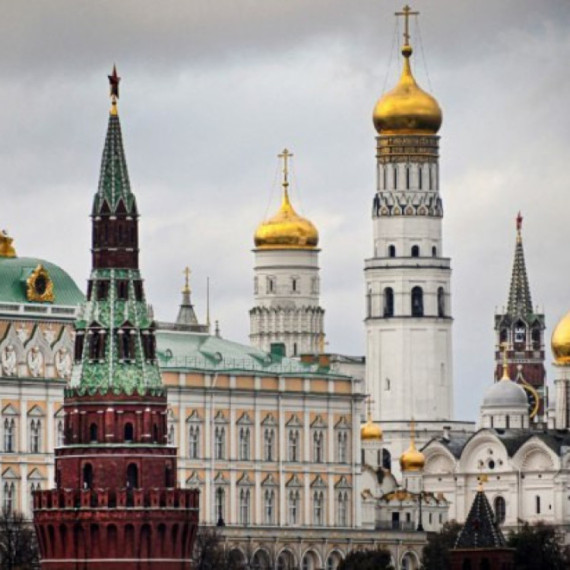
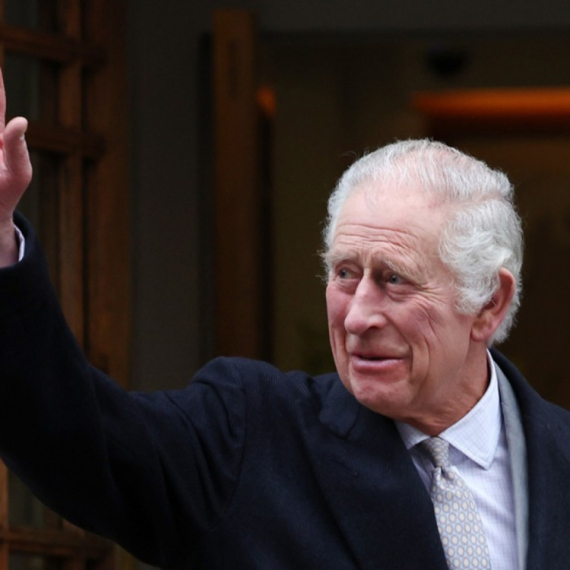




































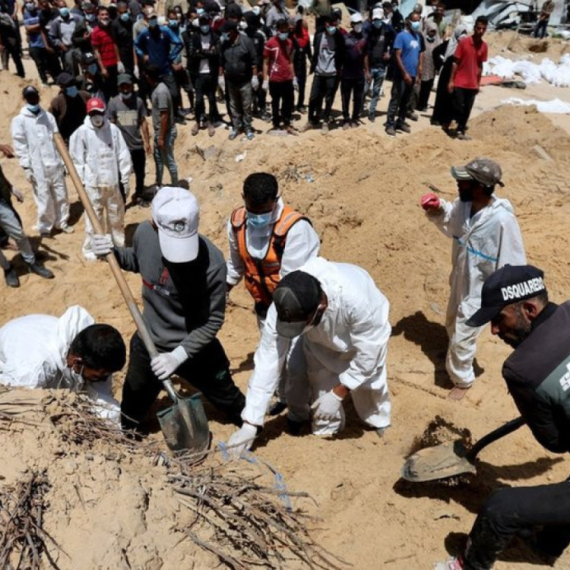


Komentari 12
Pogledaj komentare